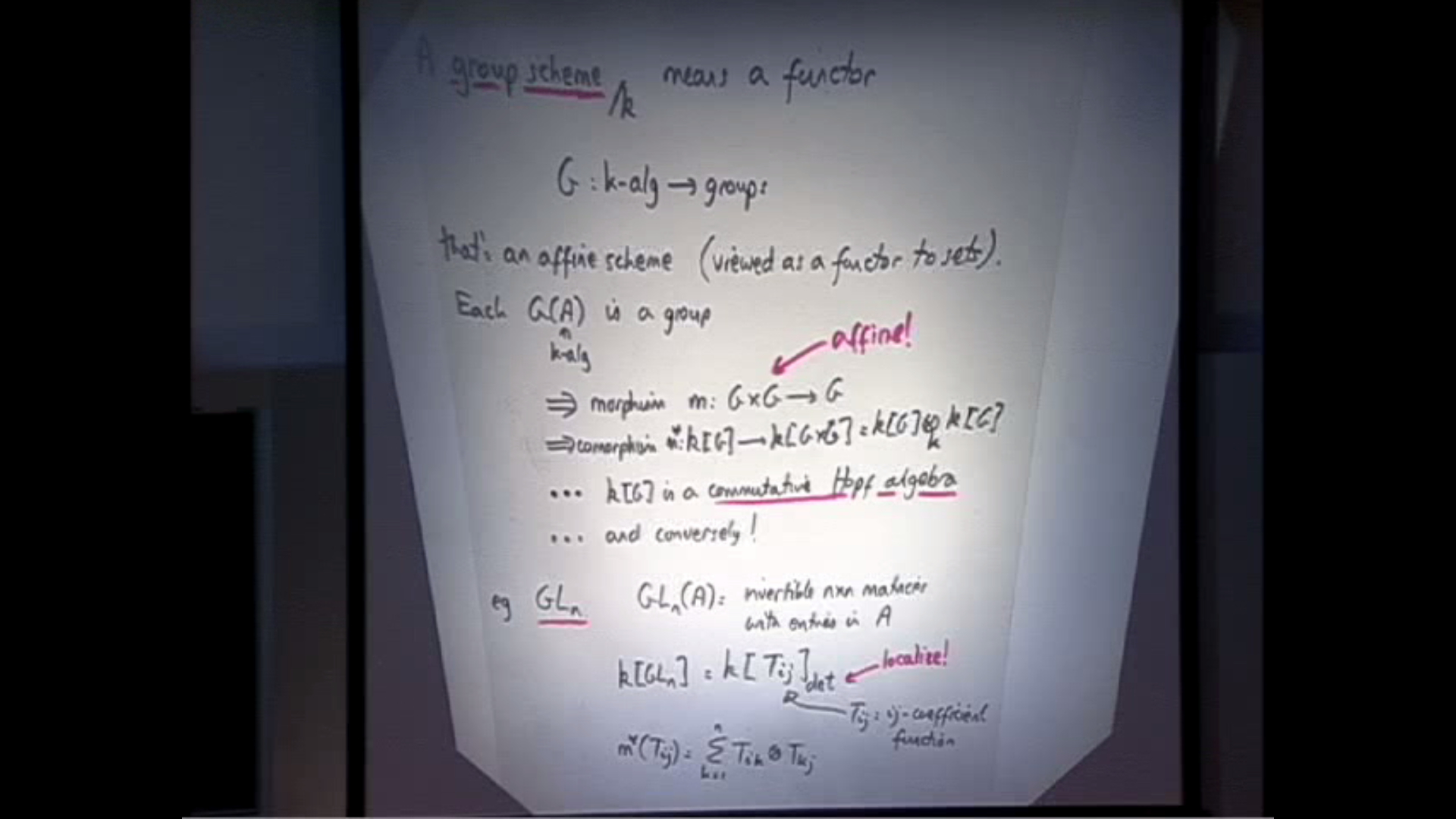Representations of Algebriac Groups in Characteristic p
Presenter
February 4, 2008
Keywords:
- group schemes
- algebraic groups
- functor of points
- simple complex Lie groups
- restricted dual Hopf algebra
- Kostant coordinate algebra theorem
- root datum
- Hopf algebra
- universal enveloping algebra
- representation theory of semisimple Lie algebras
MSC:
- 14Lxx
- 14L10
- 14L15
- 14L35
- 14-xx
- 22E46
- 22E47
- 22E60
- 22Exx
Abstract
The workshop will focus on surveying main active areas of representation theory of finite groups, especially highlighting major unsolved problems. It is meant to be accessible for graduate students and non-specialists with some background in representation theory. The bulk of the week's program will be four short series of lectures: Course 1. Block theory and counting conjectures. The course will introduce the basic ideas of modular representations, including block theory, the main theorems of Brauer and the Green correspondence. Special theories for cyclic and nilpotent blocks will be covered. Subsequently, several counting conjectures will be discussed. These include the Alperin-McKay conjecture, Alperin's weight conjecture, the Knorr-Robinson synthesis via alternating sums, Dade's conjecture and recent subtle refinements. Course 2. Representation theory of groups of Lie type. While emphasizing the general linear group, this course covers topics including representations in characteristic zero, p and "el" and related structures such as Hecke algebras. Course 3. Representation theory and topology. The purpose of this course is to describe some of the important tie-ins between representation theory and algebraic topology through topics from cohomology of groups applied to representation theory, homological algebra (e.g. derived categories), fusion systems and p-local finite groups. Course 4. Broue's abelian defect group conjecture. This course will focus on equivalences between derived categories of blocks and on Broue's isotypies between blocks. In the case of finite groups of Lie type, related geometric structures enter the picture. These include Deligne-Lusztig varieties and complex reflection groups. As another illuminating example, the case of the symmetric groups will be discussed. The four courses will be supplemented by a number of single lectures on a variety of topics.
